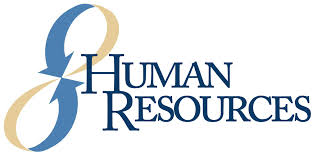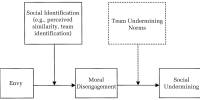A transformation of traditional HRM practice to modern HRM practice is necessary in Bangladesh.
Chapter-1 INTRODUCTION
The role of the Human Resource Manager is evolving with the change in competitive market environment and the realization that Human Resource Management must play a more strategic role in the success of an organization. Organizations that do not put their emphasis on attracting and retaining talents may find themselves in dire consequences, as their competitors may be outplaying them in the strategic employment of their human resources.
The new millennium has brought about new challenges for human resources departments and practitioners around the world. These new challenges raise questions about the nature HR practices and the role of HR professionals, and imply new approaches for the HR function in product and service delivery. Organizations recognize the critical importance that human capital means for competitiveness, and ultimately survival in the modern era.
In Bangladesh ‘the concept of HR’ is not very old. But within last 7 to 10 years it is widely practiced and now maximum large company keeps a department of Human Resource Management. As we move into the ‘new economy’, the focus on people and knowledge has steadily increased. Today, companies face new challenges in dealing with issues such as the scarcity of talent, the value of ideas/knowledge and the changing preferences of the labour market. Consequently, successful HR strategies are needed more than ever.
Chapter-2. PROFESSIONAL RESEARCH ON THE TOPIC
A. Origin of the Report
This report was authorized in writing by the course instructor Mr. Md. Musharrof Hossain to write an assignment on the course Human Resource Management as a part of MBA program of IIUC. This is written by Mizanul islam, IIUC ID No: 321871. The report was submitted on 10th January 2011.
B. Objective
The objective of this report is to study and identify the challenges face to Human Resource professionals in Bangladesh. This paper also highlight on how a HR professionals can meet the challenges and try to analysis how to motivate employees through proper planning, organizing, leading and controlling their human resources.
C. Scope
Since the entire Challenging matters are very much diverse, this paper is kept limited to study major challenges.
Chapter-3 METHODOLOGY
The study is theoretical in nature based on desk study method. We use qualitative approach with supporting and relevant research studies are reviewed and evaluated. We take help from research articles, papers, text books, publication and web sites.
The study are limited in the following area:
1. Challenges that face HR professional in Bangladesh
2. The importance & functions of HR professionals
3. Recommendation to meet the challenge and better performance of HR
Chapter-4. DATA FINDINGS ANALYSIS & INTERPRETATION
Looking at successful HR practices today, we see a number of areas where HR professionals can make an important contribution to the overall success of their organization. HR expert and author has identified some issues that are key if the HR function is to add measurable value, deliver business results, enact professionalism, and demonstrate new competencies. Briefly these challenges are:
1. Proper HR Policy & HR Planning Development
The main challenge of HR professionals is to develop an effective HR policy for organization which will part of strategic plan to maintain competitive advantage.
On the basis of HR policy, HR planning development also a major task of HR professionals.
2. Attracting and Retaining the best
Business organizations of the future will compete aggressively for the best people, and the successful organizations will be the ones that are able to attract good people, use them effectively, develop them and retain their skills within the organization.
3. Managing Technological Challenge
Managers and HR professionals need to be able to redefine work to maximize the value of technology in the organization. This means making technology a viable and productive part of the work setting, and requires that HR professionals keep ahead on the information curve.
4. Transforming the Organization
Over the past decade, organizations have gone through one change initiative after another including downsizing, consolidations and restructurings. Unlike many of these turnaround efforts, transformation goes to the heart of the organization changing the fundamental image of the business, as seen by customers and employers. HR has to play a leading role in organizational transformation.
5. To Outsource or Not
Hiring from outside technician for service is the question on many minds in many organizations. Since all departments within an organization should be the optimization of resources toward the core business objectives. Companies do not exist, for example, to support the HR department. As with the frontline employees dealing directly with external customers, levels of internal service from the HR department should be continually evaluated as well.
6. Change management
It represents a particular challenge for HR professionals, as this expertise has generally not been a consistent area of focus for training and development. This challenge arises by organization expansion and shifting management. When organization expands from their original work i.e. a garments factory expand to composite knitting then HR professional face some challenge. In shifting the work keeping smoothness is very much challenging.
7. Leadership Development
It also proves to be a big challenge. HR professionals continue to wrestle with understanding the best ways to keep people in the pipeline and develop leaders for future succession planning. HR professionals are expected to provide the essential frameworks, processes, tools, and points of view needed for the selection and development of future leaders.
8. Profitability Through Cost and Growth
Revenue growth is a key component of the profitability equation. The main paths to growth include through leveraging customers, leveraging core competencies and mergers, acquisitions or joint ventures. Each of these has HR implications and requires co-operation between management and HR professionals to design and deliver new organizational practices.
9. Benefit plan designs
The days of putting a benefit plan in place and leaving it undisturbed for a number of years are quickly vanishing. Today’s marketplace for talent, coupled with changing lifestyles, requires more frequent customization in order to remain a competitive tool for attracting and retaining employees. Let’s not forget the need to hold down costs.
10. Good Working Environment
To solve any type of harassment in the work-place is very much challenging for HR Professional. Personal liking or disliking of boss, sexual harassment or any type harassment spoils the working environment and tend to decrease the productivity.
11. Mergers, Acquisitions and Restructuring
These will continue as long as companies strive for increased economies of scale, greater productivity and market share. The changes we have been reviewing are largely driven by one or more of these activities. The potential employee problems associated with combining differing work cultures, restructuring hurdles can offset the intended benefits of the changes. If well managed however, the results can be very rewarding. Is your game plan in place?
12. Partnering with the business
HR’s role is purely an administrative function as a true strategic partner within the organization. Being in touch with the needs of the organization and understanding how you can assist with the fulfillment of its strategic directives is paramount. In fact, a critical future issue for HR will be organizational effectiveness – again supporting HR’s critical role as a strategic partner to management.
13. Facilitating Professional and Personal Development
A growing number of employees see their professional and personal development as going hand in hand. More and more companies are therefore taking a holistic view of the development of their employees. At the same time, employers are realizing they can no longer assume the responsibility for
designing development plans for each member of staff. This initiative is rapidly being transferred to the employees themselves and HR must therefore find tools to facilitate the mass customization of individual development.
14. Ongoing Legal/Regulatory compliance
Laws and other government regulatory requirements tend to be very dynamic, subject to constant change. So regular updating of regulation and ensuring legal compliance as per current requirement is also a challenge for HR professional in Bangladesh. Moreover in the country legal explanation does not seem to be adequate. There is lack of uniformity of the interpretation of law that lead to practice by organizations in different way. There is also ambiguity of existing legal policy or detailed policy framework on HR actions seems to be incomplete.
15. Performance Appraisal & Evaluation System
A good performance evaluation system verifying that there is a performance deficiency and determining whether that deficiency should be corrected through training or through some other means (such as transferring the employee). So effective performance appraisal will motivate the employee which is a big task of HR professional.
Other important issues that are facing of HR professional in Bangladesh included organizational effectiveness, recruitment policy & selection process, availability of local labor, motivational initiatives and succession planning.
Chapter-5 SUMMERY CONCLUSION & RECOMMENDATION
The role of the HR professionals in Bangladesh must parallel the needs of the changing organization. Successful organizations are becoming more adaptable, resilient, quick to change directions, and customer-centered. Within this environment, the HR professional must learn how to manage effectively through planning, organizing, leading and controlling the human resource and be knowledgeable of emerging trends in training and employee development.
Our recommendations are:
1. Establishing & computerizing Human Resource Information System (HRIS)
2. Applying motivational approach
3. Planning a mentoring program
4. Organizing Talents Strategically
5. Leading the Talk
6. Control & Measure result
7. Gain Sharing
8. Appropriate Training & development program.
9. Proper rewarding system developed
10. Good image development about organization to ensure compliance, fairness, justice and impartiality.
Conclusion: However, even with various challenges in Bangladesh, HR professionals try to good contribution in organizational development. Not only Multinational companies, local companies in the country are receiving enormous economic benefit from companies in other regions (such as companies in USA, EU or SAFTA) that are continuing to outsource their information technology, customer service and manufacturing needs. Such global economic realities, along with the political developments that influence them, require decisive, ethical and visionary local leadership to quickly and effectively navigate and manage change. HR professionals in Bangladesh, as elsewhere, need to be sensitive to external conditions as well as to their own commitment to achieve organizational goal.
Chap: 6 References
1. Bennett, N., Ketchen, D. and Schultz (1998) ‘An examination of factors associated with the integration of human resource management and strategic decision making’ Human Resource Management.
2. Boxall, P. (1998) ‘Achieving Competitive Advantage through Human Resource Strategy: towards a theory of industry Dynamics’ Human Resource Management Review.
3.. Kamoche, K. & Mueller, F. (1998). Human resource management and the appropriation learning perspective.
4. Different website and class lecture.
















